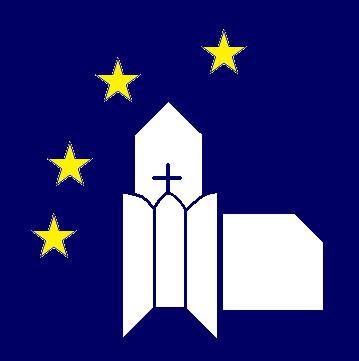Working Group: “Preventing Corruption by Engaging Civil Society”
Report on the 2nd Meeting of the Working Group, June 28, 2018
Democracy, Social Cohesion and Global Affairs Committee of the INGO Conference
The second meeting of the Working Group (WG) “Preventing Corruption by Engaging the Civil Society” was held on Thursday 28, 2018 and eleven participants representing ten NGOs were present.
The agenda of the meeting included the following items:
Administrative issues
Choose one objective to have specific, effective results.
Redefine expected results according to the set-up objective.
Presentation of the Centre for Development, Democracy and Governance (CDDG) Working Group on Public Ethics made by Jutta Gützkov, Head of Good Governance Division
European Committee on Democracy & Governance CDDG
Set up an Action Plan, including activities to be undertaken until next meeting
1. Administrative issues: New coordinator
2. Choose one objective to have specific, effective results.
Participants decided to focus only on one of the three objectives identified during the first meeting of the WG last January, in order to have specific, effective results.
The chosen objective was: “To educate citizens to prevent corruption”.
3. Redefine expected results according to the set-up objective.
Participants emphasized the importance of grass roots activities aimed at raising citizens’ awareness, starting from an early age, with school education programs, taking into account that are other structures which work with official local and national institutions to fight corruption. They mentioned that there is a strong need to develop a civic culture based on transparency and honesty which rejects corruption practices.
This renewed civic-mindedness in public affairs also requires a search for truth and transparency and “educate citizens to ask questions, is one of the building blocks required if we want to develop a culture of honesty; and access to information is a prerequisite”. When citizens are aware of corruption facts, they should have the opportunity to denounce them, resist corruption practices and hold governments accountable.
Education should represent the foundation of our Working Group actions; civic education activities and campaigns are needed to start from an early age in order to rise up generations which will not accept corruption. One participant suggested to adapt books for high school and university students and to create pedagogical tools, handbooks included. The main challenge is the lack of funds.
A suggestion for an expected result was to create a document on behalf of the INGO Conference to be sent to the CDDG, or to the Committee of Ministers.
Other expected results participants identified were to set-up a list of websites and NGO movements/networks which work to curb corruption.
Start with grass roots examples which are more relevant than theoretical discussions and Invite to the next meeting of the WG, NGOs which have expertise in preventing corruption, in order to develop a methodology and a good practice document.
4. Presentation of the CDDG Working Group on Public Ethics made by Jutta Gützkov, Head of Good Governance Division
Ms. Gützkow presented the objectives and the CDDG’s mission together with the aim of the Working Group on Public Ethics which had its first meeting on June 7-8, 2018. She mentioned that CDDG “is updating the 2004 Handbook of Good Practice on Public Ethics, developing guidelines on public ethics for all levels of government on the basis of the relevant Council of Europe instruments and best practices and latest developments and measures in member States”.
During their first meeting the Working Group on Public Ethics defined the chapters in the new handbook: “Definition/ Principles”; Culture of Public Ethics”;” Measures to promote public ethics”; “Implementation of measures to ensure effective action”.
Once the manual is ready, guidelines will then be defined to encourage the emergence of a public ethic. The WG “Preventing Corruption by Engaging the Civil Society” could contribute with examples of education to prevent corruption to be introduce in the chapters of “Culture of Public Ethics” and “Implementation of measures to ensure effective action”. There is a need for an approach of the whole society for an ethical behaviour.
The Group should also take into consideration The Code of Good Practice for Civil Participation in the Decision-Making Process which was elaborated by the Conference of INGOs for future work! To prevent corruption in a culture of public ethics is important to involve all actors concerned: citizens and local and national governments. It is the participation of all that is required.
Our WG can contribute effectively to the activity of the WG on Public Ethics by the representative in the CDDG who can consult the working group.
After the discussion with Ms. Gutzkow, the group decided to contribute to the elaboration of two chapters of the handbook: “Culture of Public Ethics” and “Implementation of measures to ensure effective action”. We can provide a database of INGOs that have carried out education and awareness campaigns on preventing corruption, which can propose examples of good practices and we can choose among the examples that had the most impact and invite these NGOs to come and share their work with our Working Group.
Participants considered that is not enough to give only examples of countries where everything is going well, but it will be more constructive to find examples of countries where acts of corruption have been positively reported and have been eradicated. It is important to analyse processes in order to be able to develop, “models".
Participants also expressed their concern about corrupted international institutions and the lack of reaction of the public opinion.
At the end of the meeting, participants agreed upon the following:
to work on education to prevent corruption
to identify into each of their country NGOs active in the field of education to prevent corruption
to contribute to the Handbook of Good Practice on Public Ethics edited by the Working Group on Public Ethics of CDDG on two chapters: “ Culture of Public Ethics” and “Implementation of measures to ensure effective action”
Luminita Petrescu, Vice-President, Committee on Democracy, Social Cohesion and Global Affairs
